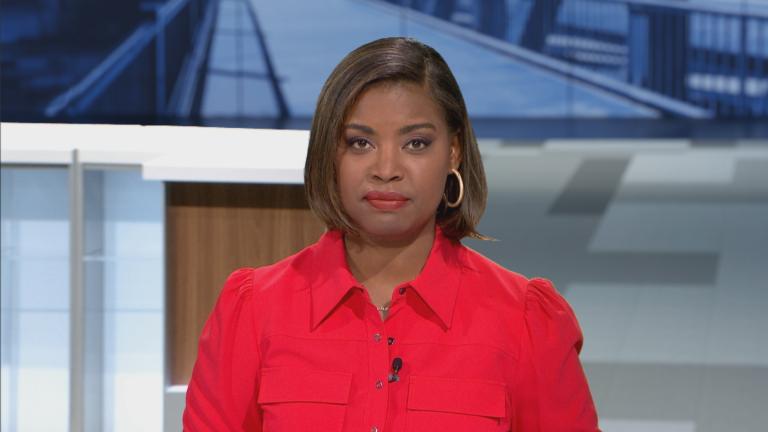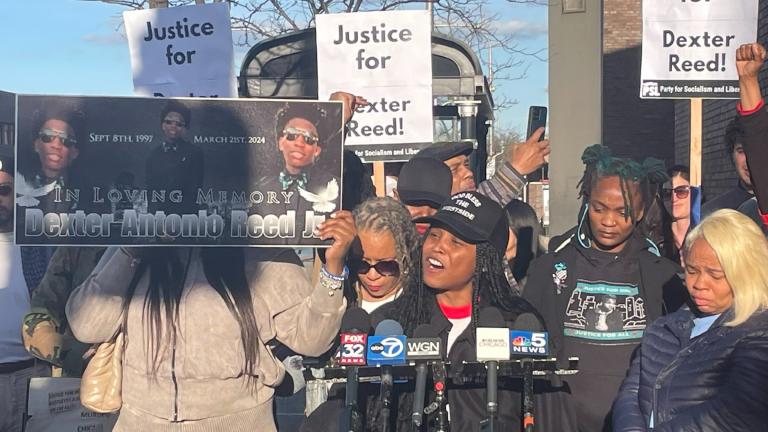In 1994, brothers Sean Tyler and Reginald Henderson were convicted of murder after being tortured into false confessions. They were exonerated in 2021 after serving more than 25 years in prison.
In March, Tyler and Henderson were hoping to close this long and wrenching chapter in their lives by securing certificates of innocence from the court — but instead, they were told they’ll need to prove their innocence in a new hearing.
Henderson said being forced to return to Cook County’s Leighton Criminal Court Building, which was the setting for so many terrible memories for him, is a compounding of trauma.
“Having to relive it over and over again — it’s trauma again,” Henderson said. “So just imagine physically being beaten and now having to go through the mental part of it, continuously walking up the same steps that we’ve had to walk through to prove ourselves.”
Henderson’s attorney, Jennifer Bonjean, said a certificate of innocence is critical to allowing the wrongly convicted to rebuild their lives, in part because it comes with monetary compensation.
“It’s very difficult when people come out of prison, particularly innocent people because they don’t actually get the same services that people who have done the time for crimes they’ve actually committed and come out and go on parole,” Bonjean said. “These guys have been exonerated, so they don’t come out to the same resources, and therefore they really struggle because getting jobs still, even though they don’t have this conviction in their background, they still have to explain to people where they’ve been for the last 20 years.”
Tyler said as they prepare for the next hearing, he’s “trying to trust the process.”
“Trying to really put it in my head that although Kim Foxx and the State’s Attorney Office wants to have a hearing that they’re really going to, I’m trying to believe that they’re really going to throw the towel in,” Tyler said. “I could be fooling myself as I have before many of times, but I want to have just a little bit of faith in the system, which again has shown itself plenty of times to me to be broken.”
The Exoneration Project’s Karl Leonard, who is representing Tyler, said he’s perplexed by the court’s ruling that another hearing would be necessary in this case.
“Normally you think of the criminal justice system as the state having to prove you guilty,” Leonard said. “In this context, we have to prove Sean and Reginald innocent. It’s not uncommon, but in other instances, the state agrees that the individuals are entitled to the certificate of innocence. And that process is very opaque to me. I don’t know how they decide when they’re going to oppose and when they’re not going to oppose. I definitely don’t understand how they arrived at the decision here to oppose these two certificates of innocence after agreeing that Sean and Reginald should be exonerated.”
Henderson said while his mother did live long enough to see their exoneration, her death not long after they returned home weighs heavily on him because he believes their ordeal negatively affected her health.
“She willingly told my younger brother to go to the police station and see what the police want, not knowing that 25 years and 27 years later, that we will be released from prison for some things we didn’t do,” Henderson said. “So I try to get people to understand her mentality and the burden that they put on this woman and who later suffered from a heart attack. … It’s been rough. The certificate will allow us to go to our mother’s grave site and tell her, ‘It’s something that you’ve always wanted that we have.’ There’s two things you want to do, and that’s, one, you want to be right by God and you want to do right by your parents. That’s all we wanted to ever do.”
Obtaining a certificate of innocence will allow the brothers to finally move forward, Tyler said.
“I left at 17 and came back at 42. I’m 46 now,” Tyler said. “So we’ve been having an ongoing fight since 1994, this is almost 30 years later. So to receive it and anything that comes behind, it can do nothing but help. That’s all they can do. It won’t fix nothing, just make things just a little easier moving forward. To be told that there’s two levels of free is mind-blowing. To be exonerated, you’re believing that you’re free only to go somewhere and they tell you have to be free two times in order to get upstairs. … I want to be fully free. I just want to know that I’m free.”
The brothers’ next court date is April 20, with a witness hearing beginning May 4.








